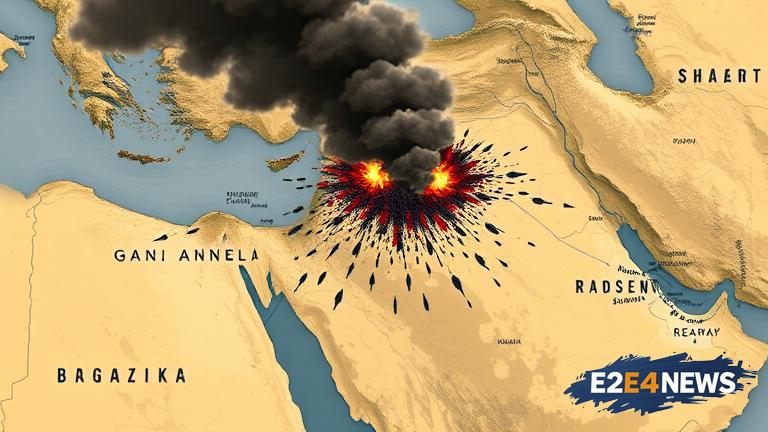The recent decision by Israeli Prime Minister Benjamin Netanyahu to approve a full occupation of Gaza has sent shockwaves throughout the international community. According to reports, this move is aimed at regaining control over the Gaza Strip, which has been a point of contention between Israel and Palestine for decades. The occupation is expected to involve a significant deployment of Israeli troops and military equipment, leading to concerns about the potential for violence and human rights abuses. The Gaza Strip has been under a blockade since 2007, which has led to widespread poverty, unemployment, and a humanitarian crisis. The Israeli government has cited security concerns as the reason for the occupation, stating that it is necessary to prevent terrorist attacks and protect Israeli citizens. However, critics argue that the occupation will only serve to exacerbate the situation, leading to further violence and instability in the region. The international community has expressed concern over the decision, with many calling for a peaceful resolution to the conflict. The United Nations has urged both sides to exercise restraint and to work towards a two-state solution. The European Union has also expressed its concern, stating that the occupation will only serve to undermine the peace process. The United States has been criticized for its support of Israel’s actions, with many arguing that it is not doing enough to promote a peaceful resolution. The occupation of Gaza is not only a concern for the region but also has implications for global security. The situation in Gaza is complex, with a long history of conflict and occupation. The Israeli-Palestinian conflict is one of the most enduring and contentious issues in the Middle East, with both sides having competing claims to the land. The conflict has led to the displacement of millions of Palestinians, who are still waiting for a resolution to the issue. The occupation of Gaza is a significant escalation of the conflict, and it remains to be seen how the situation will unfold. The international community must work together to promote a peaceful resolution to the conflict, one that takes into account the rights and concerns of both Israelis and Palestinians. A two-state solution is widely seen as the only viable option, with Israel and Palestine living side by side in peace and security. However, achieving this goal will require significant effort and compromise from both sides. The occupation of Gaza is a major setback to the peace process, and it will require a concerted effort to get the process back on track. The situation in Gaza is a humanitarian crisis, with millions of people living in poverty and without access to basic necessities like food, water, and healthcare. The occupation will only serve to exacerbate this crisis, leading to further suffering and instability. The international community must take immediate action to address the humanitarian crisis in Gaza, providing aid and support to those in need. The occupation of Gaza is a clear violation of international law, and it is imperative that the international community holds Israel accountable for its actions. The situation in Gaza is a test of the international community’s commitment to human rights and the rule of law. It is imperative that we take a strong stance against the occupation and work towards a peaceful resolution to the conflict. The Israeli government must be held accountable for its actions, and the international community must work together to promote a peaceful resolution. The occupation of Gaza is a major concern for the region and the world, and it requires immediate attention and action. The situation is complex, but it is clear that the occupation is not the solution. A peaceful resolution to the conflict is the only way forward, and it requires significant effort and compromise from both sides. The international community must work together to promote a peaceful resolution, one that takes into account the rights and concerns of both Israelis and Palestinians.





